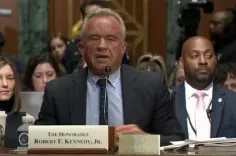Will all eviction drives along the Nagaland-Assam border be executed jointly?

Synopsis
Key Takeaways
- Joint eviction efforts between Nagaland and Assam will prevent unilateral actions.
- Protection against illegal immigration is a priority for both states.
- A Special Border Response Force will be created for swift responses to border issues.
- Local communities are crucial in the eviction and plantation process.
- Official sources should be consulted for information regarding developments.
Kohima, Sep 4 (NationPress) All eviction operations along the inter-state borders of Nagaland and Assam will be executed collaboratively by the district administrations and law enforcement agencies from both states. This initiative aims to guarantee that no unilateral measures are undertaken and to curb the influx of illegal immigrants, stated Nagaland's Deputy Chief Minister Yanthungo Patton on Thursday.
During his address on the second day of the state Assembly session, the Deputy Chief Minister revealed that the Nagaland government, under the leadership of Chief Minister Neiphiu Rio, is vigilantly monitoring the situation along the inter-state borders.
He informed the assembly that after discussions between the Chief Ministers of Nagaland and Assam on August 21, it was mutually decided to suspend any further plantation or pillar installations until the issues are addressed at the Chief Ministerial level.
In a Cabinet meeting on August 26, it was resolved that all illegal immigrants would be evicted, and any necessary plantation operations would be executed jointly by both states, ensuring coordination among district administrations, law enforcement, forest departments, and the involvement of local communities.
Patton, who oversees the Home and Border Affairs portfolio, mentioned that the Cabinet has decided to communicate with the Union Home Minister and the Ministry of Home Affairs regarding the persistent presence of Assam Police Forces in the Disputed Area Belt (DAB), which contravenes the 1972 Agreement.
He highlighted that Assam currently operates 45 permanent police outposts in the DAB, whereas Nagaland has dismantled all five of its pre-1972 police outposts.
Since the initial reports about an eviction-oriented survey in the Reserve Forest conducted by Assam authorities, the Nagaland state government responded by having the Border Magistrate of Uriamghat raise the issue with the Border Magistrate of Sarupathar on July 17 and conducted an on-site verification.
Subsequently, a joint coordination meeting took place on July 22 with senior officials from both sides at Sarupathar, Assam.
Patton also informed the assembly that on July 24, he visited the DAB area of Wokha and Niuland districts accompanied by MLAs, representatives from the Lotha Hoho, Lotha Students’ Union, and local leaders from Western Sumi Hoho to directly engage with the affected communities.
The Nagaland Cabinet has also agreed to form a Special Border Response Force (SBRF) comprising personnel from Border Affairs, Police, and the Forest Department to ensure a prompt response to any border issues.
Patton reassured all assembly members that the state government would continue to take all necessary actions to protect the interests of its citizens in border districts, ensuring that no unilateral actions are taken and that all eviction or plantation drives are strictly collaborative endeavors.
He urged all civil society organizations and the media to depend solely on verified, official sources for information regarding the recent developments in the DAB.






